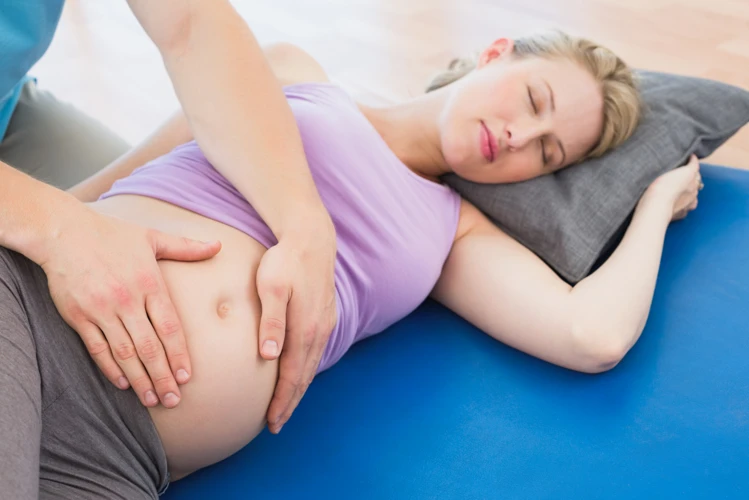Pregnant women can benefit from massage therapy to help reduce stress, soreness, and even to reduce labor pains. However, there are certain areas of the body that should be avoided when getting a massage while pregnant. This article provides information on the spots to avoid massage when pregnant, so that expectant mothers can get the most out of their massage experience.
Contents
Pressure Points to Avoid When Pregnant
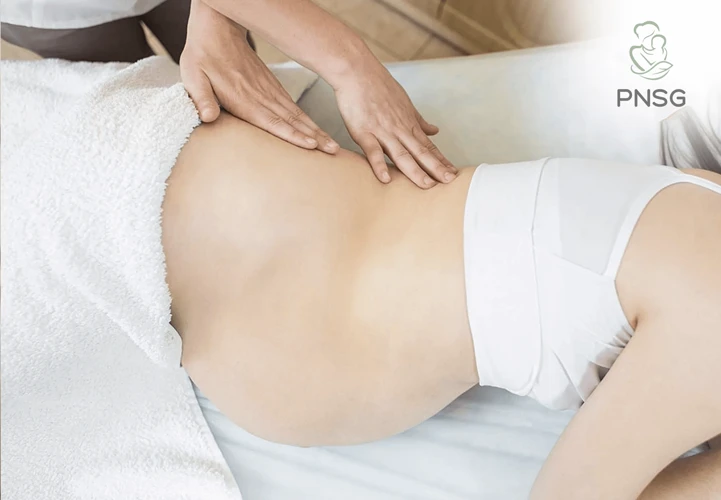
Abdomen
Massaging the abdomen during pregnancy should be avoided due to the sensitivity of the area. Pressure points may cause contractions and should be avoided.
Feet and Ankles
The feet and ankles are off limits during a massage while pregnant. The feet and ankles contain pressure points that may induce labor.
Head
The head should be avoided during a massage while pregnant. Massaging the head can cause extreme discomfort due to pregnancy hormones.
In general, it is always best to consult a doctor before getting a massage while pregnant. It is important to know which pressure points not to massage when pregnant to ensure the safety of the mother and baby.
Shoulder Massage When Pregnant
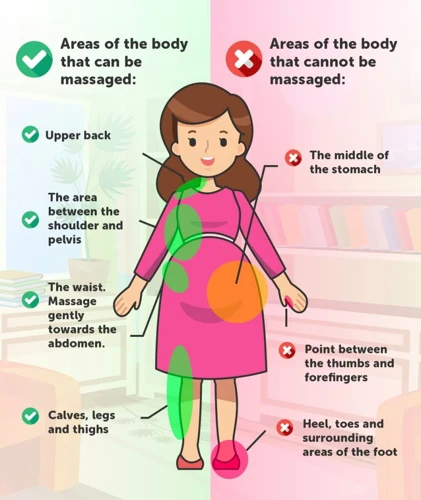
It is generally safe to receive a shoulder massage while pregnant. However, it is important to be aware of the pressure applied. Women who are pregnant can be more sensitive and tender than usual, so pressure should be kept to a minimum. It is also important to avoid applying pressure near the collarbone and shoulder blade. These areas can be tender for pregnant women and may cause discomfort. In addition, massage therapists should avoid applying pressure to the abdomen as this could cause uterine contractions or induce labor. It is also important to avoid any massage movements that might cause dizziness or nausea.
Deep Tissue Massage When Pregnant
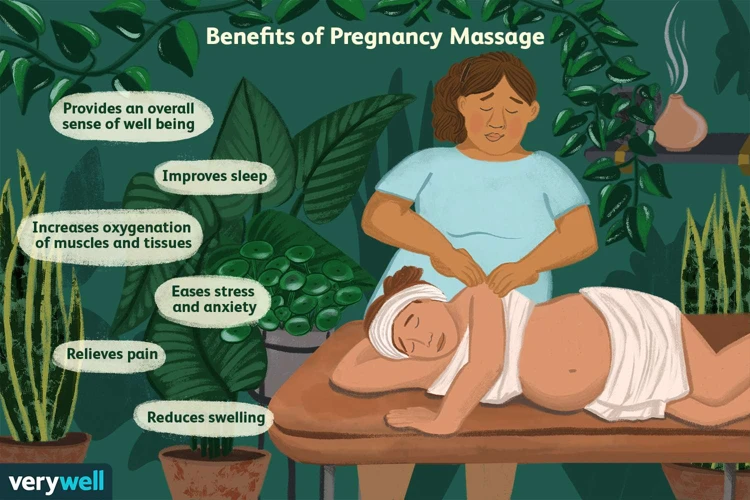
Pregnant women should avoid deep tissue massage for several reasons, as the technique can cause discomfort, pain and even premature labor. Here are some interesting facts about deep tissue massage when pregnant:
- Pressure Points: Deep tissue massage works on pressure points to relieve pain and tension. However, some of these pressure points can be harmful to the mother and baby during pregnancy.
- Circulation: Deep tissue massage increases circulation, which can be beneficial in relieving the symptoms of pregnancy, such as back pain or headaches. However, the increased circulation can also be dangerous if it affects the baby’s circulation.
- Premature Labor: Deep tissue massage can increase the risk of premature labor, especially in the third trimester. Therefore, it is important to avoid deep tissue massage during the third trimester to reduce the risk of premature labor.
- Stress: Deep tissue massage can be beneficial in relieving stress and tension, but it can also be dangerous in the context of pregnancy. The increased stress can lead to premature labor or other pregnancy complications.
- Hormones: Deep tissue massage can increase the production of hormones, which can be beneficial for pregnant women. However, it can also be harmful if the hormones affect the baby’s development.
It is important to consult with a doctor before getting a deep tissue massage while pregnant, as the technique can be beneficial in some cases, but can also be dangerous.
Benefits of Massage While Pregnant
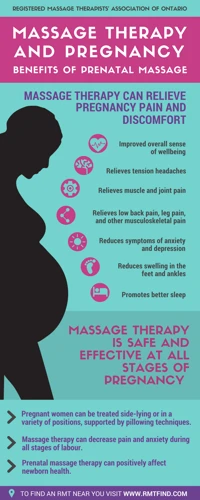
| Physical Benefits | Mental Benefits |
|---|---|
| Reduces swelling in hands and feet | Reduces stress and anxiety |
| Reduces lower back pain | Improves mood and overall well-being |
| Reduces muscle tension | Reduces fatigue |
| Improves circulation | Improves sleep quality |
| Promotes relaxation | Boosts immunity |
Massage during pregnancy can provide numerous physical and mental benefits. Physically, it can reduce swelling in the hands and feet, lower back pain, muscle tension, and improve circulation. Mentally, it can reduce stress, anxiety, fatigue and improve mood and overall well-being. It can also improve sleep quality and boost immunity.
Potential Risks of Massage While Pregnant

It is generally considered safe to receive a massage while pregnant, but there are potential risks that should be discussed with a physician prior to treatment. These risks include:
- The potential of preterm labor
- The possibility of increased swelling
- The possibility of increased pain
- The potential of an infection
- The possibility of decreased blood pressure
- The potential of increased cramping
It is also important to note that massage during the first trimester should be avoided or limited due to the increased risk of miscarriage. Massage should also not be used over areas of the body that have varicose veins or any other type of vascular condition.
Tips for Getting a Massage While Pregnant
Choose the Right Massage Therapist: Look for a massage therapist who is certified and experienced in working with pregnant women. It is also important to inform them of your pregnancy, the stage of your pregnancy, and any medical conditions or complications you may have.
Discuss Your Needs: Before the massage, discuss your needs with your massage therapist. Explain the areas you would like to focus on, such as lower back pain, neck pain, and other aches and pains. You can also ask for advice on how to avoid any pressure points that could potentially be harmful to your baby.
Choose the Right Position: It is important to choose the right position for your massage. Reclining on your side is generally the best position for pregnant women. This position allows you to remain comfortable while the therapist can easily access the areas that need to be worked on.
Choose the Right Pressure: Ask your massage therapist to use light to medium pressure throughout your massage. Pregnant women should also avoid any deep tissue techniques.
Stay Hydrated: Make sure to drink plenty of water before and after your massage to stay hydrated. This will help your body to flush out any toxins that may have been released during your massage.
Take a Warm Bath: Taking a warm bath after your massage can help your body to relax and recover. It can also help to reduce any soreness or swelling you may have.
Frequently Asked Questions
What are the potential risks of getting a massage while pregnant?
- Pressure Points: During pregnancy, it is best to avoid any deep pressure or pressure points as they could stimulate contractions.
- Lying in Uncomfortable Positions: Lying on your stomach or back can cause strain on your lower back and can be uncomfortable. Your massage therapist should be able to provide pillows or cushions to make you more comfortable.
- Heat: Heat can be dangerous during pregnancy, as it can cause blood vessels to dilate and cause dehydration. Make sure your massage therapist avoids hot stones, hot oils and steam rooms.
- Certain Oils: Some essential oils, such as rosemary, sage, and juniper can be dangerous when pregnant, as they can cause contractions. Make sure to inform your massage therapist of any allergies.
- Infection: It is important to make sure your massage therapist uses clean and sanitized tools and towels. If the massage therapist is unlicensed, there is a higher risk of infection.
How can I tell if a massage therapist is qualified to massage pregnant women?
- Educational background: Look for a massage therapist who has taken specialized courses related to massage therapy for pregnant women, or has had additional training in prenatal massage.
- Experience: Ask the massage therapist how many clients they have worked with who were pregnant. It is recommended to find someone who has at least two years experience with pregnant clients.
- References: Ask the massage therapist for references from clients who have received prenatal massage treatments.
- Certifications: Look for a massage therapist who is certified in prenatal massage.
- Licensing: Make sure the massage therapist is licensed in your state and has the appropriate credentials.
Are there any special precautions I should take before a massage during pregnancy?
Yes:
- Always consult your doctor first before getting a massage while pregnant.
- Inform your massage therapist that you are pregnant before the massage.
- Let your massage therapist know your due date.
- Let your massage therapist know if you have any complications or high-risk conditions.
- Drink plenty of water before and after the massage.
- Wear loose, comfortable clothing.
- Avoid oils and lotions that contain essential oils.
- Let your massage therapist know if you experience any discomfort.
Is it safe to use essential oils during a massage while pregnant?
Essential oils should be avoided during pregnancy as they can be absorbed into the skin and can have an effect on the pregnant woman and the unborn baby. Some essential oils, such as lavender, can cause contractions and should be avoided. For a safe massage, it is best to stick to plain unscented oils.
What are the Benefits of Getting a Massage While Pregnant?
Massages during pregnancy can bring a variety of benefits, such as improved circulation, reduced stress and anxiety, improved sleep, and relief from aches and pains. Massage can also help reduce swelling in the arms and legs, and can help to relieve headaches and back pain. Getting a massage can help to improve overall wellbeing and help to reduce fatigue, as well as improving mood and reducing stress. Additionally, massage can help to reduce labor pain, improve labor outcomes, and reduce postpartum depression.
Conclusion
Pregnant women should take certain safety precautions when getting a massage. Areas to avoid include the abdomen, legs, ankles, and feet. It is also important to communicate any discomfort or pain to the massage therapist. With these tips in mind, pregnant women can enjoy the relaxation of a massage without the risk of injury.

